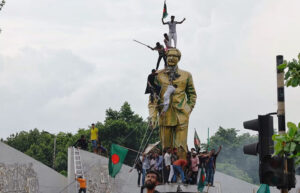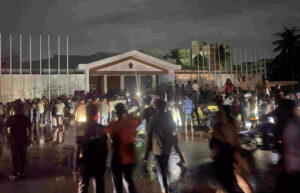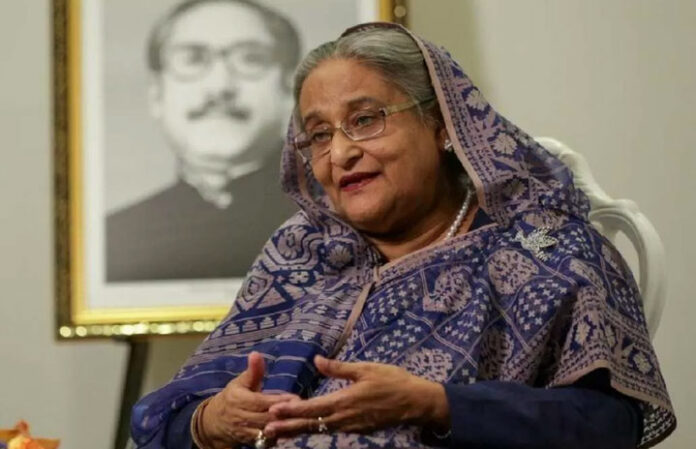The recent political upheaval in Bangladesh has raised significant concerns, particularly in its impact on regional stability and India’s strategic interests. The dramatic events, including the overthrow of Sheikh Hasina, who had served as Prime Minister for 15 years, and the subsequent damage to the statue of Sheikh Mujibur Rahman, have captured global attention. Here’s a detailed breakdown of the situation and its implications:
Sheikh Mujibur Rahman: A Symbolic Figure

Sheikh Mujibur Rahman is revered as the founding father of Bangladesh, akin to Mahatma Gandhi in India. His leadership was pivotal in the country’s struggle for independence from Pakistan, with substantial support from India. The statue of Mujibur Rahman, a symbol of Bangladesh’s national pride and history, has recently been vandalized, with images showing individuals climbing on the statue and damaging its face. This act of desecration is deeply shocking and signifies a troubling shift in the country’s political landscape.

The Fall of Sheikh Hasina
Sheikh Hasina, who led Bangladesh for over a decade and a half, has been accused of autocratic governance. Despite her administration’s role in fostering stability and being advantageous for India’s strategic interests, her tenure was marked by significant controversies. Critics argue that her long period in power led to a consolidation of authority, suppression of dissent, and a general autocratic stance. These issues culminated in widespread protests and discontent.
The Overthrow and Its Immediate Consequences
The catalyst for the recent upheaval was a proposed reservation system by Sheikh Hasina for those who fought in the 1971 independence war. This proposal ignited protests, with students demanding merit-based job allocation instead. The protests escalated, leading to severe repression by Hasina’s police and, ultimately, her forced departure from the country. The overthrow resulted in at least 300 deaths and extensive unrest.
The Rise of New Forces
With Sheikh Hasina’s exit, there are rising concerns about the forces gaining prominence in Bangladesh. The vandalism of Mujibur Rahman’s statues suggests a possible shift toward more radical or extremist elements. The emerging forces could potentially be less favorable to India’s strategic interests and might pose new challenges, particularly concerning the security of minorities and Hindu communities in Bangladesh.
India’s Strategic Concerns
Sheikh Hasina’s departure has significant ramifications for India. Her administration, despite its flaws, was considered a strategic ally for India. The new political environment in Bangladesh could disrupt various aspects of Indo-Bangladeshi relations, including business interests. Indian projects, such as those led by industrialist Gautam Adani, might be jeopardized.
Moreover, there are concerns about a potential refugee crisis if conditions deteriorate for minorities in Bangladesh. BJP leader Suvendu Adhikari has already suggested that up to one crore Hindus might seek refuge in India, which would place a substantial burden on India’s resources and infrastructure.
Allegations of External Involvement
Reports suggest that the coup was facilitated by a conspiracy involving China and Pakistan’s Inter-Services Intelligence (ISI). According to Indian intelligence sources cited by the Times of India, the student organization responsible for the coup had financial backing from these external actors. This raises questions about the effectiveness of Indian intelligence and its preparedness to handle such geopolitical developments.
Lessons and Implications
The current situation in Bangladesh serves as a stark reminder of the perils associated with prolonged autocratic rule. Sheikh Hasina’s fall underscores the potential instability that can arise from entrenched power structures. It also highlights the importance of maintaining democratic values to avoid similar fates. For India, the challenge is to navigate this new political landscape in Bangladesh while safeguarding its strategic interests and addressing potential humanitarian concerns.
In conclusion, the recent changes in Bangladesh are very important and have big consequences. They show how unstable things can get during political changes and remind us of the need to be careful in handling regional relationships and strategic interests.





